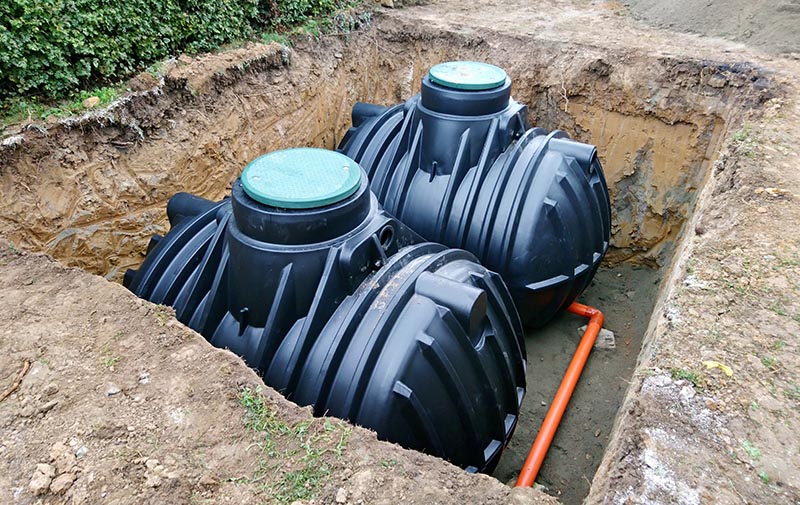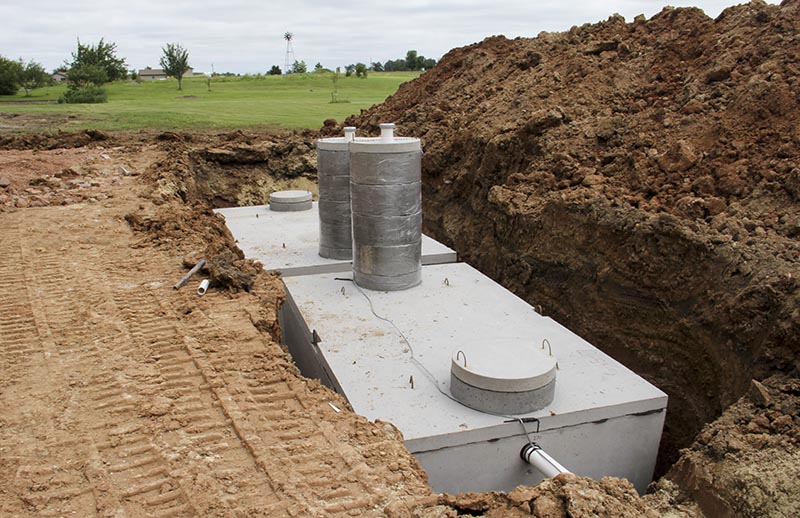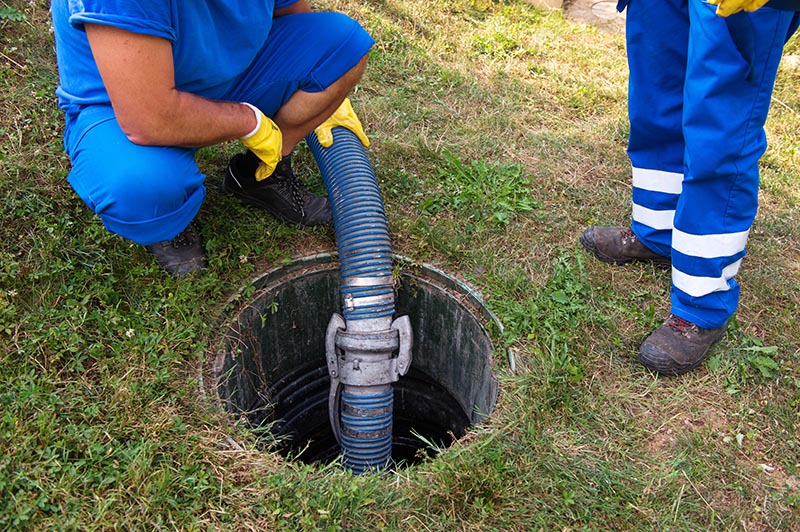How Long Do Septic Systems Last? The Interesting Answer!
-
Kristin Hitchcock
- Last updated:

Septic systems last a very long time. Sometimes, these systems may even last lifetimes. However, a more normal lifespan is at least 25 years.
How long a septic tank lasts largely depends on maintenance. If the septic system is taken care of, it can last many years. A concrete septic tank is very durable and won’t be damaged by weathering. Therefore, with regular maintenance, you may never need to replace these systems (though your grandchildren may).
Of course, different types of septic tanks last different periods of time. There are also other factors to consider, as well.
Types of Septic Tanks
Concrete septic tanks are the most common septic tank for a reason. These tanks last a very long time. You won’t need to start thinking about a replacement until it reaches about 30 years old. However, age is only one factor to consider. If properly maintained, these tanks can last many lifetimes.
Steel septic tanks are becoming more popular. However, these tanks have a shorter lifespan of about 15 years. Eventually, the water will eat through these tanks, which is when you will need to replace them. These tanks aren’t as dependable due to their ability to rust. If you live in a particularly wet area, they may not even make it a decade.
As you can see, concrete tanks are the way to go. Steel septic tanks are even illegal in many areas. They tend to rust and collapse, leading the health hazards.

Environmental Factors
We’ve touched on environmental factors a little bit. However, there are lots of other factors to consider, too.
Of course, wet areas can reduce the lifespan of a steel tank. The water will cause rust, leading to holes and cracks. However, water has less of an effect on concrete tanks. Therefore, if your area tends to get a lot of rain, choose a concrete tank.
Acidic soil will lead to corrosion over time, though. While concrete tanks are much less prone to this damage, it will occur on a small scale. Over many decades, this can lead to septic tank failure. This factor isn’t really one you can control. It’s mostly a matter of where you live.
On the other hand, if you live in an area with more neutral soil, you can expect a septic tank to last at least 40 years with proper care.
Sizing
Septic tank sizes are based on the number of bedrooms in the home. As you might imagine, the bedroom number is often related to the number of people living in the home. Therefore, the septic tank can only handle a certain number of people. If you have more people living in your home than this, then you’ll need to consider increasing your septic tank size.
If you have more people in your home than your septic tank is designed to handle, you can expect problems. The septic tank may overflow or become full more often. Clogs may occur. Over time, the septic tank itself will wear down, leading to replacements needing to be made sooner.
Maintenance
Taking care of the septic tank is necessary if you want it to last a long time. Minor problems can be fixed before they become major problems that many require fixing your whole tank. If you want your septic tank to last a while, regular pumping is required. While septic tanks can hold quite a bit of waste, this waste isn’t often broken down faster than it builds up. Therefore, at some point, the tank needs to be pumped.
Often, it is recommended to pump the tank every two to three years. You’ll need a professional company to do this for you, as the waste requires special disposal.
When you get your tank pumped, ask the company to inspect the tank for damage. If there are any minor cracks, these may be able to be repaired before they become major. In this way, you can stave off needing to replace the whole tank.
Furthermore, you should be cautious about putting items into your septic tank that shouldn’t be there. If something can’t be broken down, then it shouldn’t be in your tank. These include feminine hygiene products (including tampons), disposable diapers, paper towels, cat litter, paint thinner, insecticide, and gasoline. If it isn’t water, food, or human waste, it shouldn’t be in your septic tank.

Watch for System Failure
Eventually, every septic tank will fail. This is actually pretty dangerous, as it can contaminate the surrounding area. Since you’re living near your septic tank, this failure can affect your health. Sadly, septic tanks can partially fail too, releasing pollutants into the environment but still appearing to be working.
Therefore, it’s important to watch out for common signs that your septic tank isn’t as efficient as before. In this way, you can help prevent contamination issues. These signs include:
- Drainage problems
- Gurgling noises
- Damp soil around the tank
- Foul odors around the tank
- Areas of greener grass over the tank
- Strange algae bloom on lakes or ponds near the tank
If you notice any of these problems, hire a professional to give your tank a look. You should also start saving for a new system. Even if you don’t need one yet, one or more of these signs can indicate that you’ll need one soon.
Can Septic Tanks Last 100 years?
Theoretically, a concrete septic can last for 100 years. However, this assumes that the tank is very well taken care of and in a perfect environment. In most cases, this isn’t going to occur. Instead, most septic tanks will last close to 40 or 50 years. Steel septic tanks can last shorter periods of time, of course.
The biggest problem that causes septic tanks to fail is exposure to acidic substances. While concrete is pretty resistant to corrosion, we’re talking about decades of constant exposure. If your concrete septic tank is often exposed to acidic substances, then you can’t expect it to last very long.
Maintenance is needed to help your system last longer. However, it isn’t a silver bullet. Even with regular maintenance, some tanks may fail earlier simply due to environmental factors. Having acidic soil almost always leads to a tank failing in 20 to 30 years. The soil simply eats away at the concrete.
Conclusion
Concrete septic tanks often last at least 25 years. However, with maintenance and the correct environment, you may find yours last 50 or more. Steel tanks do not last anywhere near this long, though. Because they rust, you can only expect steel tanks to last about 15 years. For this reason, they are often illegal in many areas.
Maintenance can help your tank last longer. It is recommended to pump your tank every 2–3 years. Get it inspected during this maintenance time, as well.
Featured Image Credit: Hamik, Shutterstock
Contents

